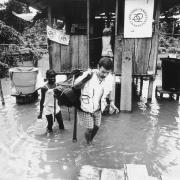Creating Safe Spaces: Tactics for Communities at Risk
Summary available
Thank you for joining the New Tactics community for an online conversation on Creating Safe Spaces: Tactics for Communities at Risk from March 11 to 15, 2013.
Sometimes, in order to make the change we seek to be realized, we need to model it so that the community can experience it for themselves. Creating a safe space in which everyone’s rights are recognized and respected gives communities at risk the opportunity live without fear of persecution or abuse. Creating this space also allows the vulnerable group to understand and experience the realization of their human rights, and giving them and the broader community a vision to work towards.
This online conversation is an opportunity for practitioners to share their examples, experiences, challenges and ideas around creating safe spaces for groups at risk and build communities that put human rights into practice.


 Since the mid-1980s, human rights groups and other activist organizations being targeted with repressive abuses have been calling on international NGOs to provide them with direct accompaniment by international field workers. These field workers — usually volunteers — spend twenty-four hours a day with threatened activists, at the premises of threatened organizations, in threatened communities or witnessing public events organized by threatened groups. The international presence serves as a deterrent against the use of violence. In order to ensure this deterrence, these international accompaniment organizations are part of transnational networks poised and ready to mobilize political pressure against perpetrators should their volunteers witness any attacks or should their clients be further threatened.
Since the mid-1980s, human rights groups and other activist organizations being targeted with repressive abuses have been calling on international NGOs to provide them with direct accompaniment by international field workers. These field workers — usually volunteers — spend twenty-four hours a day with threatened activists, at the premises of threatened organizations, in threatened communities or witnessing public events organized by threatened groups. The international presence serves as a deterrent against the use of violence. In order to ensure this deterrence, these international accompaniment organizations are part of transnational networks poised and ready to mobilize political pressure against perpetrators should their volunteers witness any attacks or should their clients be further threatened.